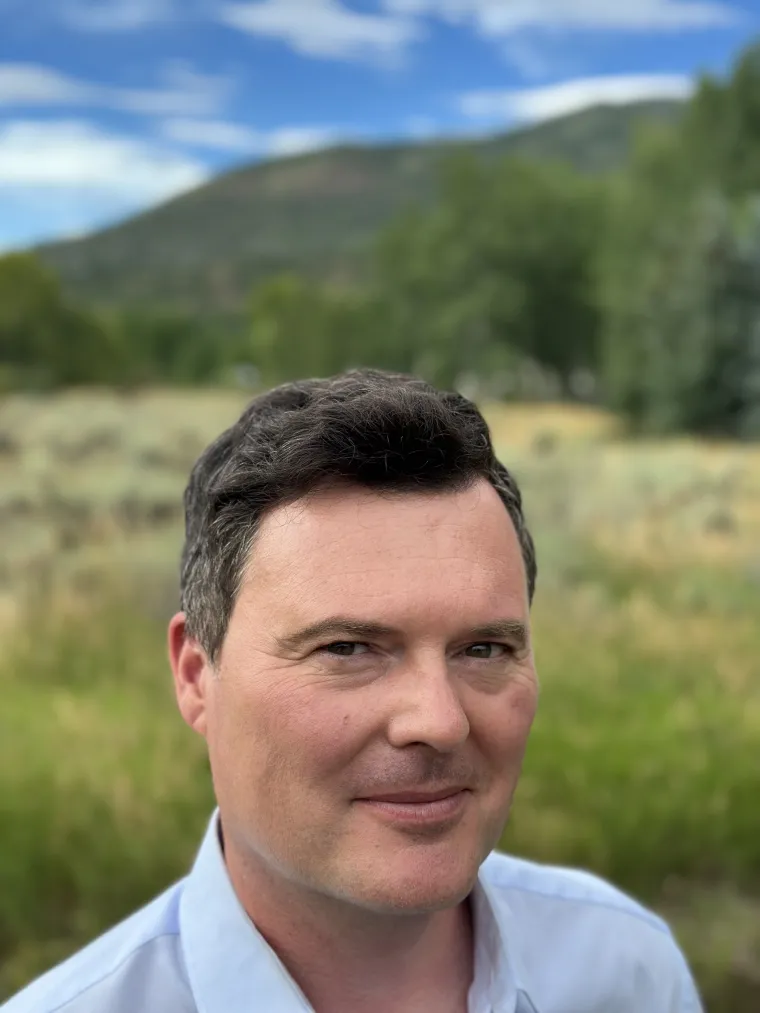Martin Reimann

McClelland Hall 320R
1130 E. Helen St.
P.O. Box 210108
Tucson, Arizona 85721-0108
Links
Areas of Expertise
Martin Reimann is the McClelland Associate Professor of Marketing at the Eller College of Management. His ongoing research focuses on how new technology is changing consumers and markets, including how humans are adopting and evolving with AI. He also investigates an experience-based account of judgment and choice, demonstrating how affect and autobiographical memory shape perceived value beyond money. Dr. Reimann’s research has advanced how leaders and organizations leverage trust in the age of AI to boost advantageous decision making through business strategies, technology, and leadership.
Martin’s work has appeared in several leading journals including in the Annual Review, Journal of Consumer Research, Journal of Consumer Psychology, Journal of Experimental Psychology: General, Journal of Marketing Research, Organizational Behavior and Human Decision Processes, and PNAS. His work has been supported by DARPA, Google, the Marketing Science Institute, the National Endowment for the Arts, and the National Science Foundation.
Martin also specializes in utilizing different methodologies, including behavioral experiments, functional neuroimaging (fMRI), and deep-learning models. His research has contributed to consumer neuroscience, with multiple original fMRI studies published in outlets such as the Journal of Consumer Research, Journal of Consumer Psychology, and Journal of the Association for Consumer Research.
Martin Reimann has been recognized as an MSI Scholar and received multiple early career awards and other accolades from the American Marketing Association, the Society for Consumer Psychology, and the Society for Personality and Social Psychology. His research has gained widespread attention in the media, with features in Scientific American and Fast Company, as well as on networks such as NPR and the BBC.
He holds affiliations as associate professor in the Department of Psychology, the College of Veterinary Medicine, and the Cognitive Science Graduate Interdisciplinary Program at the University of Arizona, and is visiting affiliated faculty at Stanford University. Martin has painstakingly defended and now holds two United States patents.
Courses:
- MKTG 471 Marketing policies & operations (undergraduate)
- MKTG 499 Research internship in consumer decision making (undergraduate)
- MKTG 572 Marketing research for managers (MSM/MBA)
- MKTG 620 Conceptual foundations for marketing researchers (Ph.D.)
- MKTG 696 Neurosciences of choice (Ph.D.)
- MKTG 696A Aesthetic & hedonics in consumer behavior (Ph.D.)
- MKTG 670 Advanced consumer behavior research (Ph.D.)
Select Publications:
- Schilke, Oliver and Martin Reimann (2026), “How does AI disclosure shape trust: Unpacking the role of legitimacy,” Social Psychology Quarterly, forthcoming.
- Hüller, Christoph and Martin Reimann (2026), “The risk-averse body: How consumers’ risk preferences deviate when making decisions about their body versus their money,” Journal of the Association for Consumer Research, 11(4), forthcoming.
- Reimann, Martin and Ann Kronrod (2026), Language as means and ends: How generative artificial intelligence automates, amplifies, and reinvents language in marketing, Journal of the Association for Consumer Research, 11 (2), forthcoming.
- Basavaraj, Chinmai, Martin Reimann, Kobus Barnard, and Lynn Nadel (2025), “Hippocampal blood oxygenation predicts risky choices for everyday consumer experiences: A deep-learning approach,” Proceedings of the National Academy of Sciences, 122 (28), e2421905122, 1-8.
- Schilke, Oliver and Martin Reimann (2025), “The transparency dilemma: How AI disclosure erodes trust,” Organizational Behavior and Human Decision Processes, 188, 104405, 1-16.
- Cao, C. Clark, Merrie Brucks, and Martin Reimann (2024), “Seeking structure in collections: Desire for control motivates engagement in collecting,” Journal of Consumer Research, in press.
- Reimann, Martin, Christoph Hueller, Oliver Schilke, and Karen S. Cook (2022), “Impression management attenuates the effect of ability on trust,” Proceedings of the National Academy of Sciences, 119 (30), e2118548119, 1-9.
- Schilke, Oliver, Martin Reimann, and Karen S. Cook (2021), “Trust in social relations,” Annual Review of Sociology, 47, 239-259.
- Wiggin, Kyra, Martin Reimann, and Shailendra P. Jain (2019), “Curiosity tempts indulgence,” Journal of Consumer Research, 45 (6), 1194-1212.
- Flores, David, Martin Reimann, Raquel Castaño, and Alberto López (2019), “If I indulge first, I will eat less overall: The unexpected interaction effect of indulgence and presentation order on consumption,” Journal of Experimental Psychology: Applied, 25 (2), 162-176.
- Reimann, Martin, Sandra Nuñez, and Raquel Castaño (2017), “Brand-aid,” Journal of Consumer Research, 44 (3), 673-691.
- Reimann, Martin, Oliver Schilke, and Karen S. Cook (2017), “Trust is heritable, whereas distrust is not,” Proceedings of the National Academy of Sciences, 114 (27), 7007-7012.
- Martin, Jolie, Martin Reimann, and Michael I. Norton (2016), “Experience theory, or how desserts are like losses,” Journal of Experimental Psychology: General, 145 (11), 1460-1472.
- Reimann, Martin, Deborah MacInnis, and Antoine Bechara (2016), “Can smaller meals make you happy? Behavioral, neurophysiological, and psychological insights into motivating smaller portion choice,” Journal of the Association for Consumer Research, 1 (1), 71-91.
- Schilke, Oliver, Martin Reimann, and Karen S. Cook (2015), “Power decreases trust in social exchange,” Proceedings of the National Academy of Sciences, 112 (42), 12950-12955.
- Reimann, Martin, Gergana Y. Nenkov, Deborah MacInnis, and Maureen Morrin (2014), “The role of hope in financial risk-seeking,” Journal of Experimental Psychology: Applied, 20 (4), 349-364.
- Marin, Alex, Martin Reimann, and Raquel Castaño (2013), “Metaphors and creativity: Direct, moderating, and mediating effects,” Journal of Consumer Psychology, 24 (2), 290-297.
- Schilke, Oliver, Martin Reimann, and Karen S. Cook (2013),“Effect of relationship experience on trust recovery following a breach,” Proceedings of the National Academy of Sciences, 110 (38), 15236-15241.
- Homburg, Christian, Martin Klarmann, Martin Reimann, and Oliver Schilke (2012), “What drives key informant accuracy?," Journal of Marketing Research, 49 (4), 594-608.
- Reimann, Martin, Raquel Castaño, Judith L. Zaichkowsky, and Antoine Bechara (2012), “How we relate to brands: Psychological and neurophysiological insights into consumer-brand relationships,” Journal of Consumer Psychology, 22 (1), 128-142.
- Reimann, Martin, Judith L. Zaichkowsky, Carolin Neuhaus, Thomas Bender, and Bernd Weber (2010), “Aesthetic package design: A behavioral, neural, and psychological investigation,” Journal of Consumer Psychology, 20 (4), 431-441
Degrees
- PhD, Psychology, University of Southern California
- MA, Psychology, University of Southern California
- Habilitation, Marketing, TU Freiberg
- Dr. rer. pol., Marketing, TU Freiberg
- Diplom-Kaufmann, HHL

